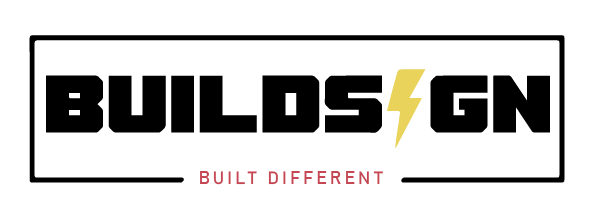WordPress powers over 43% of all websites. By 2026, simply having a WordPress site isn’t enough – you need to fine-tune it for search engines to stand out. The good news is that WordPress provides a solid foundation for SEO, and with a few best practices, you can turn your site into one that Google loves.
Master the On-Page SEO Basics
Start by covering the fundamentals of on-page SEO on every page and post: – Optimize Titles, Meta & Keywords: Write unique, descriptive titles for each page (50–60 characters) and meta descriptions (~155 characters) that include your primary keywords. Naturally incorporate your target keywords into these elements and throughout your content so Google understands your page. Clear, keyword-rich titles and snippets also improve your click-through rates in search results. – Proper Headings and Structure: Use WordPress’s heading tags to structure your content clearly. An SEO-optimized page uses one H1 for the title, then H2s and H3s for subtopics. This hierarchical structure makes it easier for both users and search engines to navigate your content. – Internal Linking: Link related pages and posts on your site using descriptive anchor text. This helps visitors navigate and helps search engines discover all your content. – Image Optimization: Always add descriptive alt text to your images for accessibility and SEO. Also, use compressed image files (or a plugin) so media doesn’t slow down your pages.
Mobile-Friendly Design is a Must
Google now uses mobile-first indexing, meaning it predominantly evaluates the mobile version of your site for ranking. In 2026, a mobile responsive design isn’t optional – it’s essential. More than 60% of all web traffic comes from mobile devices, so Google favors sites that work well on phones. Make sure your WordPress theme is mobile-friendly (most modern themes are). Test your site on a phone or use Google’s Mobile-Friendly Test to ensure everything displays and functions properly. If your site isn’t easy to use on a phone, fix that ASAP. Not only will you keep mobile visitors around longer, but Google will reward you with better visibility.
Optimize for Speed and Core Web Vitals
Site speed and user experience metrics are increasingly important for SEO. Google’s algorithms in 2026 heavily weigh performance indicators like Core Web Vitals – which measure loading speed, interactivity, and visual stability. A slow or jittery site can hurt your rankings because it hurts user experience.
Key steps to boost your WordPress site’s speed: – Fast Hosting & HTTPS: Use a quality hosting provider (fast servers) and ensure your site is secured with SSL (HTTPS). Both speed and security are favored by search engines. – Caching and Optimization: Install caching plugins (e.g. WP Rocket or WP Super Cache) to serve static versions of your pages, and use optimization plugins to minify CSS/JS and clean up your database. These reduce the load on your server and help pages render faster. – Fewer Plugins, Leaner Code: Only use plugins you truly need. Too many plugins (or poorly coded ones) can slow down your site. Likewise, choose a lightweight, SEO-friendly theme. Leaner code means faster load times, which means a better experience for users (and better rankings).
A high-performance site not only ranks better on Google[5], but also keeps visitors engaged. It’s worth regularly checking your site’s speed (with tools like PageSpeed Insights) and addressing any issues.
Craft Content with a Strategy
Content is the heart of WordPress SEO. In 2026, creating generic posts stuffed with keywords won’t cut it. Focus on quality and relevance: – Satisfy User Intent: Google wants to rank content that directly answers the searcher’s query. When planning a page or post, put yourself in your audience’s shoes. What are they trying to learn or accomplish? Ensure your content fully addresses their needs or questions. If someone searches “WordPress SEO 2026 tips,” for example, they’re looking for up-to-date, actionable guidance – so your content should deliver exactly that. – Publish Fresh, Valuable Content: Keep an active blog or resource section on your site. Regularly publishing high-quality articles not only gives Google new content to index but also signals that your site is active and authoritative in your niche. Over time, a site that consistently posts useful, relevant content will build authority and trust with both users and search engines.
Leverage WordPress SEO Tools
Finally, take advantage of tools and plugins to simplify your SEO efforts: – SEO Plugins: Install a popular SEO plugin like Yoast SEO or Rank Math. These tools help you optimize each page with ease – giving you fields for meta tags, analyzing your content for keyword usage and readability, and generating an XML sitemap to help Google find all your pages. These plugins also often help you avoid common pitfalls (like indexing duplicate pages). – Schema Markup: Consider adding structured data (schema) to your site for rich search results. For example, if you have FAQ sections, product listings, or reviews on your site, schema markup can make your Google listings more eye-catching (with things like star ratings or FAQ dropdowns). Many SEO plugins or dedicated schema plugins let you implement this without coding. – Google Search Console: Don’t forget to use Google Search Console (a free tool). It lets you monitor your site’s search performance, submit sitemaps, and see any issues (like mobile usability problems or indexing errors). It’s like getting direct feedback from Google about how your site is doing in search.
Conclusion
Building a WordPress site that Google loves in 2026 comes down to balancing technical excellence with valuable content. You need to nail the basics – from on-page SEO and site speed to mobile-friendly design – and consistently deliver content that serves your users’ needs. The reward is worth it: higher Google rankings, more organic traffic, and a website that truly supports your business goals.
Need help optimizing your WordPress site for better Google rankings? BuildSign specializes in creating SEO-optimized WordPress sites that search engines (and customers) love. Reach out to us today to start climbing those rankings with a smarter web design and SEO strategy.




Great post! 💡 This perfectly sums up what it takes to make a WordPress site stand out in 2026 — speed, SEO, and smart content strategy. WordPress gives a strong foundation, but it’s the fine-tuning that makes all the difference. 🚀